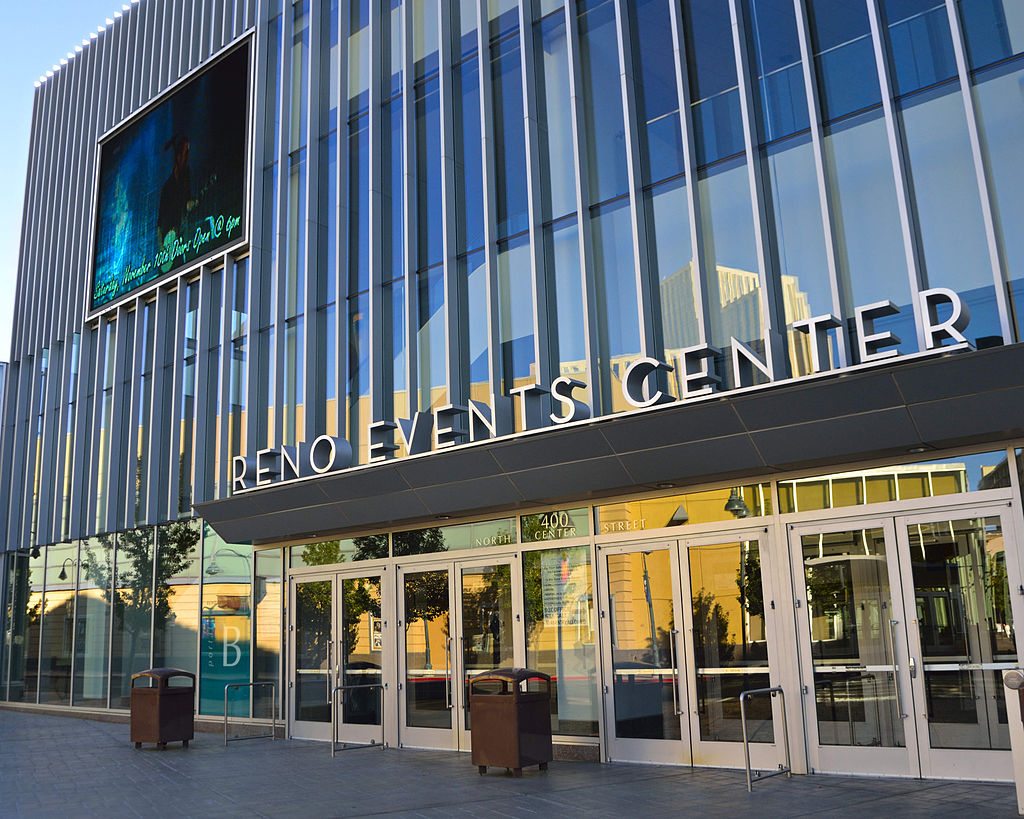A 10-year agreement to bring a minor league hockey team to the Reno Events Center and turn management of the facility over to the Reno Puck Club was approved Wednesday by the Reno City Council.
A hockey team would begin play in fall 2018 and add about 40 events per year to the venue.
Built in 2004, the Reno Events Center, 400 N. Center St., isn’t configured to host hockey or other ice-related sports. It’s currently used for concerts, athletic events, conventions, meetings and the NBA D-League’s Reno Bighorns, but sits empty about 300 days per year.
The Puck Club would take over management of the facility in July 2017 and pay for cost of renovations, totaling about $5.6 million. Almost $2.9 million would be spent on locker rooms, $2.4 million for an ice rink and about $100,000 for elevators.
Once completed, the events center would have an estimated 4,786 on-ice seats and 246 suite-level seats for hockey. During non-ice events, the amount of seating would revert to about 6,500.
Hockey season typically ranges from mid-October through early April, longer if a team makes the playoffs. Average per game attendance last season was 4,386 for teams in the ECHL, formerly known as the East Coast Hockey League. ECHL has 27 teams affiliated with the National Hockey League and American Hockey League.
“This is not just about bringing professional hockey to Reno,” said Ken Lehner, Reno Puck Club partner. “This is about bringing ice to Reno and there’s big difference because ice means youth hockey. Ice means youth tournaments. Ice means college hockey. Ice means curling. Ice means Disney. Ice means figure skating. Ice means more hotel room nights downtown.”
Under the agreement, the Reno-Sparks Convention and Visitors Authority will cease managing the events center and pay $500,000 per year to the Puck Club from 2017 to 2021.
“Commencing in 2022, the city will pledge $500,000 per year out of the $2 surcharge fund toward improvements the Reno Puck Club will make to the facility,” said Bill Dunne, city revitalization manager.
Reno established a surcharge fund during fiscal year 2012 that collects an additional $2 per night on properties with non-restricted gaming licenses in downtown and within a mile of downtown. State lawmakers in 2011 authorized municipalities to set up such funds to help pay for costs of improving and maintaining facilities used for entertainment and tourism purposes.

Councilman Paul McKenzie said the agreement seemed unclear about where surcharge funds could be going.
“If we’re going to put money into this facility, it should be for annual upkeep of the facility, not to repay the investment for the ice,” McKenzie said.
Councilman David Bobzien, who was a state legislator when such funds were approved, said the partnership with the Puck Club is within boundaries of the surcharge fund specifications.
“We have a facility that will be activated,” Bobzien said. “We’ll have more activity downtown and we’ll generate more interest in our downtown.”

